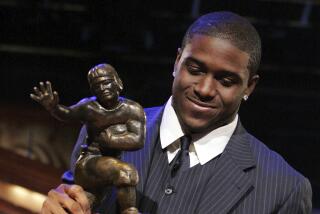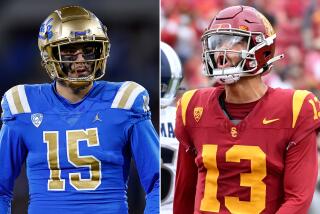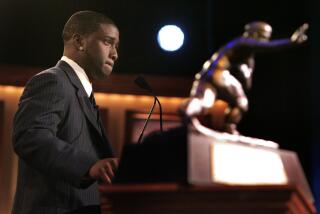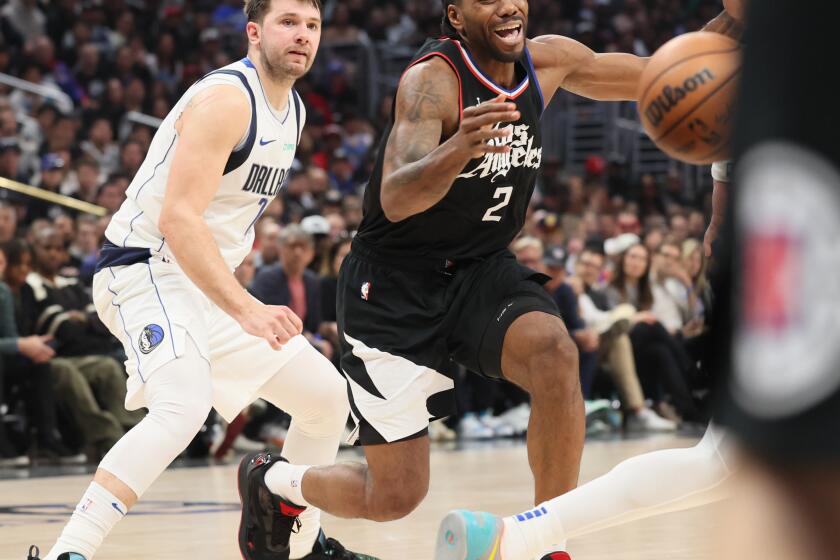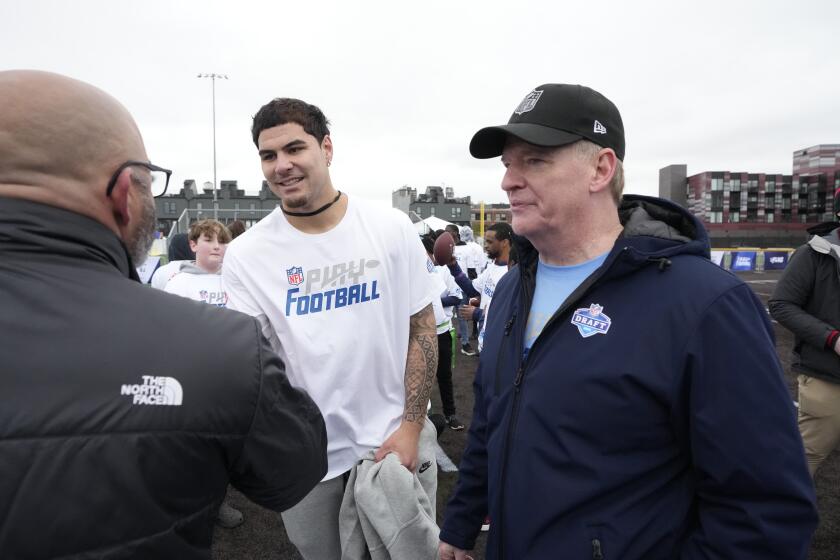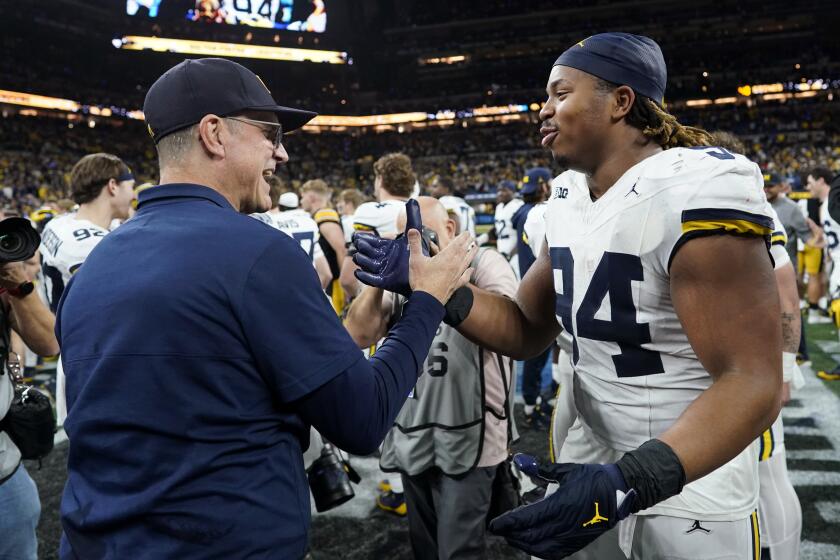College backs, ends in spread offenses a tough read for scouts
NFL coaches and scouts talked in Saturday’s edition of The Times about how difficult it is to evaluate college quarterbacks who play in shotgun-based spread offenses.
But that’s not the whole story. It’s also tough to assess running backs, tight ends and receivers who play in those systems, because their responsibilities are much different than in typical NFL offenses.
The common rationale for running the spread, which uses extra receivers to stretch a defense from sideline to sideline, is that it allows teams to get more pure athletes on the field at the same time.
“Most teams figure that they probably have more talented wide receivers than you have talented defensive backs that can cover man to man,” said Mike Mayock, scouting expert for the NFL Network. “If you have better players than the other guys, you’re probably going to win.”
Running backs in the spread commonly line up three yards to the left or right of the quarterback, not behind him as they typically do when the quarterback is under center.
Because of that, every run is like a draw, meaning the back’s first few steps are almost always lateral, crossing the quarterback’s face, rather than the straight downhill style of running that NFL scouts want to see.
To some degree, NFL teams had to roll the dice last off-season in drafting star college running backs Darren McFadden, Felix Jones, Rashard Mendenhall and Jonathan Stewart, each of whom played in a spread system.
Spread tight ends tend to be bulked-up wide receivers who are judged on their speed and ability to catch passes rather than their blocking.
“It’s hard to evaluate receivers when they run routes that maybe you don’t see run conventionally in the league,” Tampa Bay Coach Jon Gruden said. “It’s hard to evaluate tight ends because they’re flexed all over the field.”
That’s not to say NFL teams won’t spend high draft picks on these players. It’s just that teams are taking an extra-hard look at their choices.
Said Blake Beddingfield, scouting coordinator for the Tennessee Titans: “You have to throw out the scheme and ignore it and do a thorough evaluation of the player as an individual.”
--
More to Read
Get our high school sports newsletter
Prep Rally is devoted to the SoCal high school sports experience, bringing you scores, stories and a behind-the-scenes look at what makes prep sports so popular.
You may occasionally receive promotional content from the Los Angeles Times.
